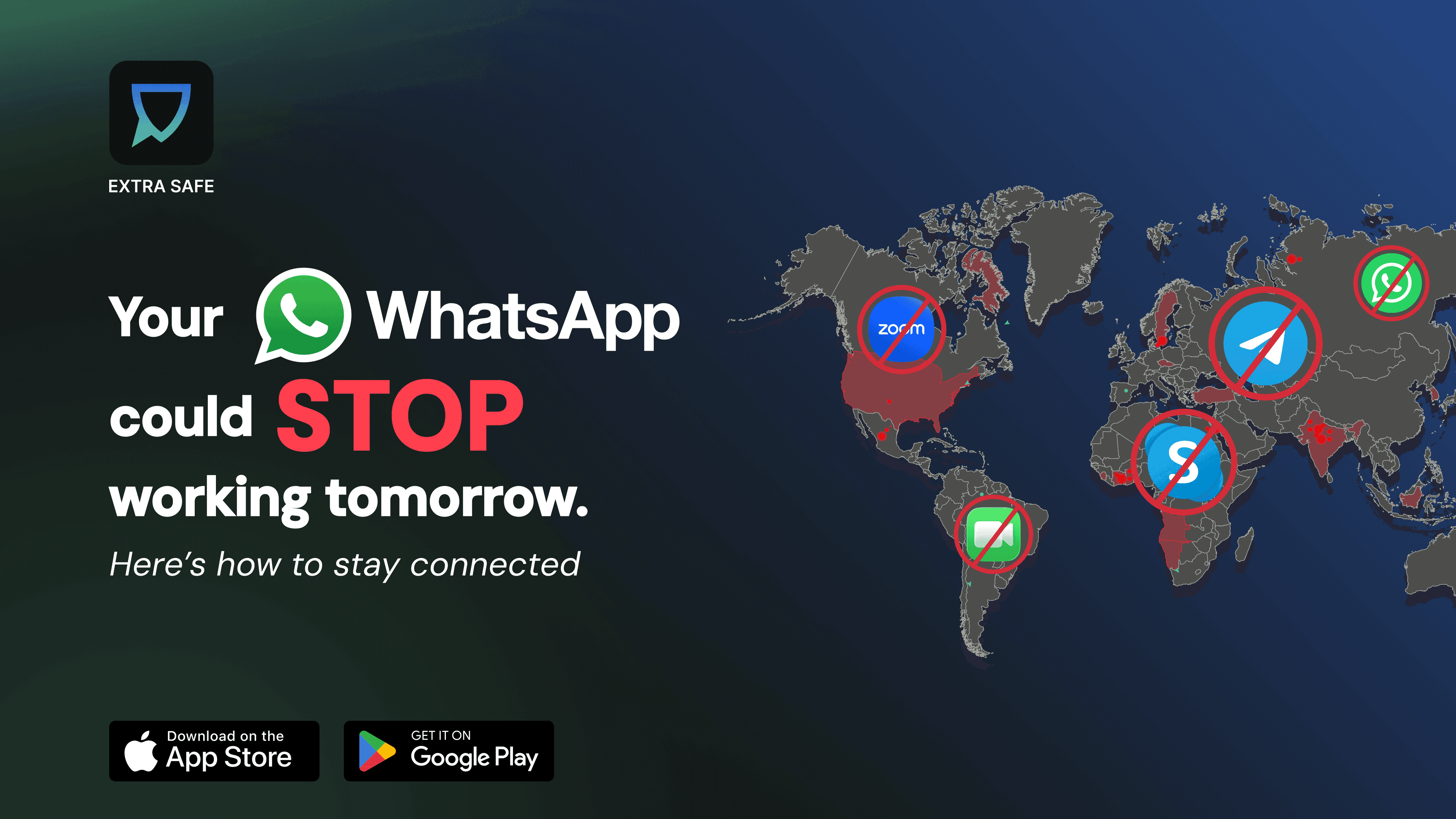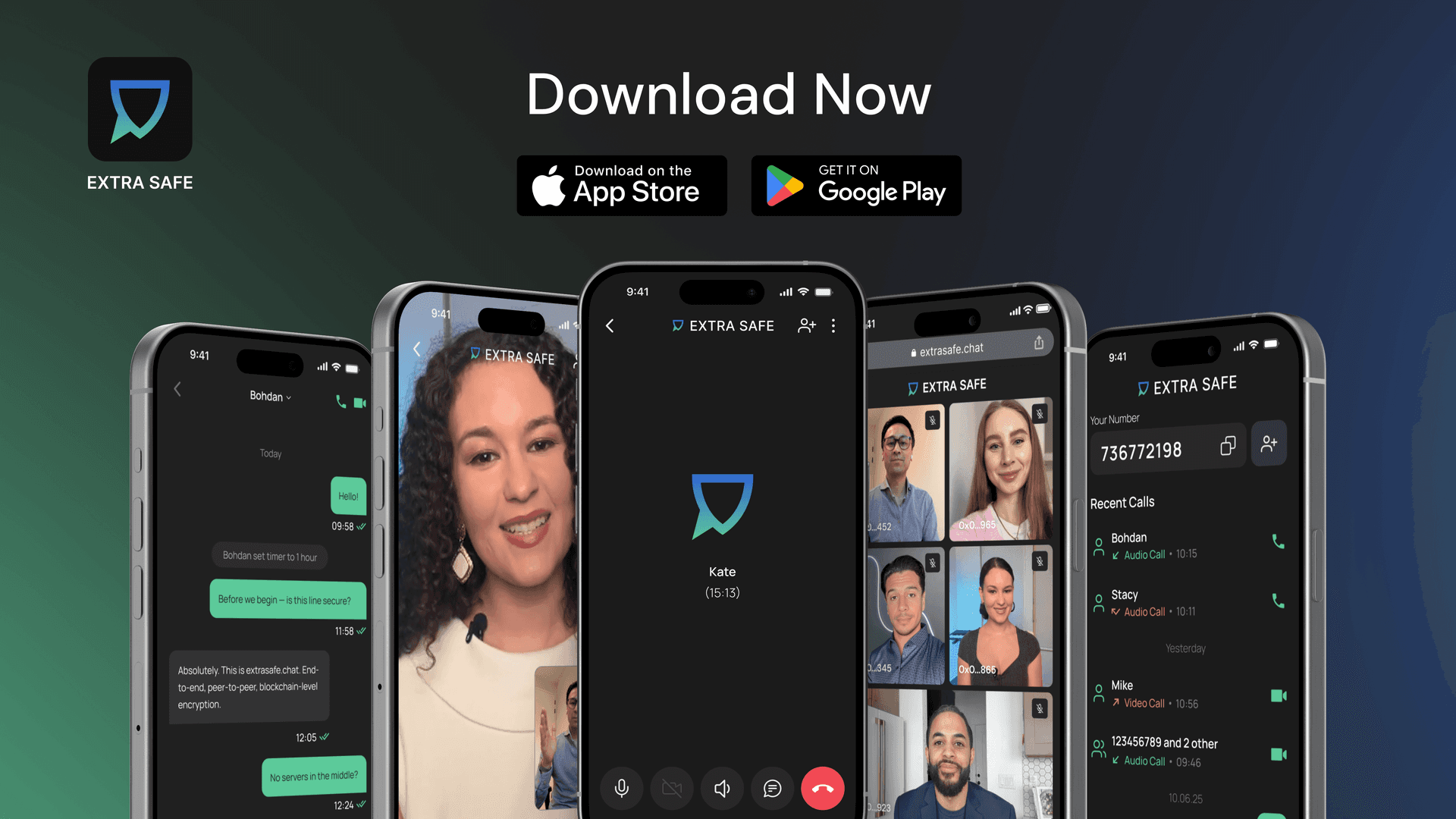October 24, 2025
Your WhatsApp Could Stop Working Tomorrow. Here’s How to Stay Connected

Video calls, voice conversations, and messaging have become the core of personal and professional life. Yet, across regions, the foundations of private communication are being reshaped. Regulations, compliance requirements, and national platforms are increasingly defining the tools people can use.
The Rise of Communication App Restrictions
Across the world, people have seen limits placed on their everyday communication tools. In Turkey, popular apps were temporarily restricted during unrest. In Nepal, services including WhatsApp were banned nationwide before being restored after public pressure. In the Middle East, widely used platforms continue to limit voice and video calling.
Most recently, in Russia, voice and video calls on WhatsApp and Telegram were made unusable while a national messenger, Max, was introduced without end-to-end encryption.
VPN as a Practical Choice in Times of Restrictions
In such times, one of the few working solutions can be a VPN. It creates a private channel between a device and the internet, encrypting traffic and masking location. This allows communication tools to function more reliably when access is limited or filtered.
The most trusted options are those built on transparency and privacy-focused design.
ProtonVPN: Developed by the team behind ProtonMail, it is open-source, based in Switzerland, and known for strong encryption standards and independent security audits.
Mullvad: Designed for anonymity, it requires no registration or personal information, supports anonymous payments, and maintains a consistent record of transparency reports.
Windscribe: Offers a stable free plan, robust encryption, and reliable operation in regions with frequent network filtering, making it practical for everyday use.
What Do These Restrictions Mean for Everyday Connections
When widely used apps are restricted, people lose stability in how they connect. Calls and chats with friends or colleagues may be interrupted without warning. Workflows can stall as teams scramble for substitutes.
The replacements may come with weaker privacy - national messengers without encryption, or platforms designed for monitoring rather than protection. The result is uncertainty: people cannot rely on tools to stay private or consistent.
In such times, what matters is a trusted and private way to stay connected. EXTRA SAFE was created with that purpose - p2p architecture with local key generation and ephemeral sessions, securing your private conversations.
How EXTRA SAFE Redefines Private Communication - Even in Restricted Environments
EXTRA SAFE was built for everyday situations where privacy matters most. From personal calls to team collaboration, it provides a full set of private tools:
Private Video Call
Secure Video Conferencing
Group Video Calling and Meetings
Encrypted Messaging
Disappearing Messages (Vanish Mode)
File Sharing and In-call Chat
Screen Sharing

Download EXTRA SAFE app for free
All communication in EXTRA SAFE is secured with asymmetric encryption and a peer-to-peer model, where data is exchanged directly between devices. Keys are generated locally on each device, sessions are ephemeral, and nothing is stored beyond the conversation itself.
In practice, this means you can have a one-to-one call or gather a group, send a quick message or share files, collaborate with colleagues, or connect with family - all in a private session that closes without leaving data behind.
Enjoy private conversations anywhere, anytime. Download EXTRA SAFE for iOS or Android. Prefer the browser version? Visit extrasafe.chat